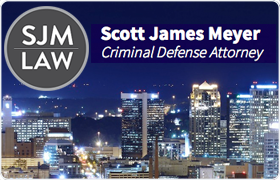Brookside White Collar Crime Lawyer, Alabama
Sponsored Law Firm
-
 x
x

Click For More Info:
-
Law Office of Scott Meyer
1211 28th Street South Birmingham, AL 35205 » view mapJefferson County Criminal Lawyer Success with Scott
Scott James Meyer provides first-class criminal defense representation in Birmingham and the State of Alabama for drug offenses and other felonies and misdemeanors.
800-697-0641  Scott Meyer Birmingham, AL
Scott Meyer Birmingham, ALAttorney At Law - Alabama, 2010
Birmingham School of Law, J.D. - 2009
 Facebook
FacebookFor Additional Information About The Law Office of Scott Meyer
 Contact UsEmail or Call 24/7
Contact UsEmail or Call 24/7Call Today For Your Initial Free Consultation.
Redding Pitt
Government Agencies, Personal Injury, Employment, White Collar Crime
Status: In Good Standing
FREE CONSULTATION
CONTACTHannah Cotney Thompson
Litigation, Lawsuit & Dispute, White Collar Crime, Insurance
Status: In Good Standing Licensed: 12 Years
FREE CONSULTATION
CONTACTErskine R. Mathis
White Collar Crime, Misdemeanor, Felony, DUI-DWI
Status: In Good Standing Licensed: 44 Years
FREE CONSULTATION
CONTACTAngela Catherine Cameron
Litigation, Health Care Other, White Collar Crime, Medical Malpractice
Status: In Good Standing Licensed: 20 Years


 Scott Meyer Birmingham, AL
Scott Meyer Birmingham, AL Facebook
Facebook Contact UsEmail or Call 24/7
Contact UsEmail or Call 24/7
